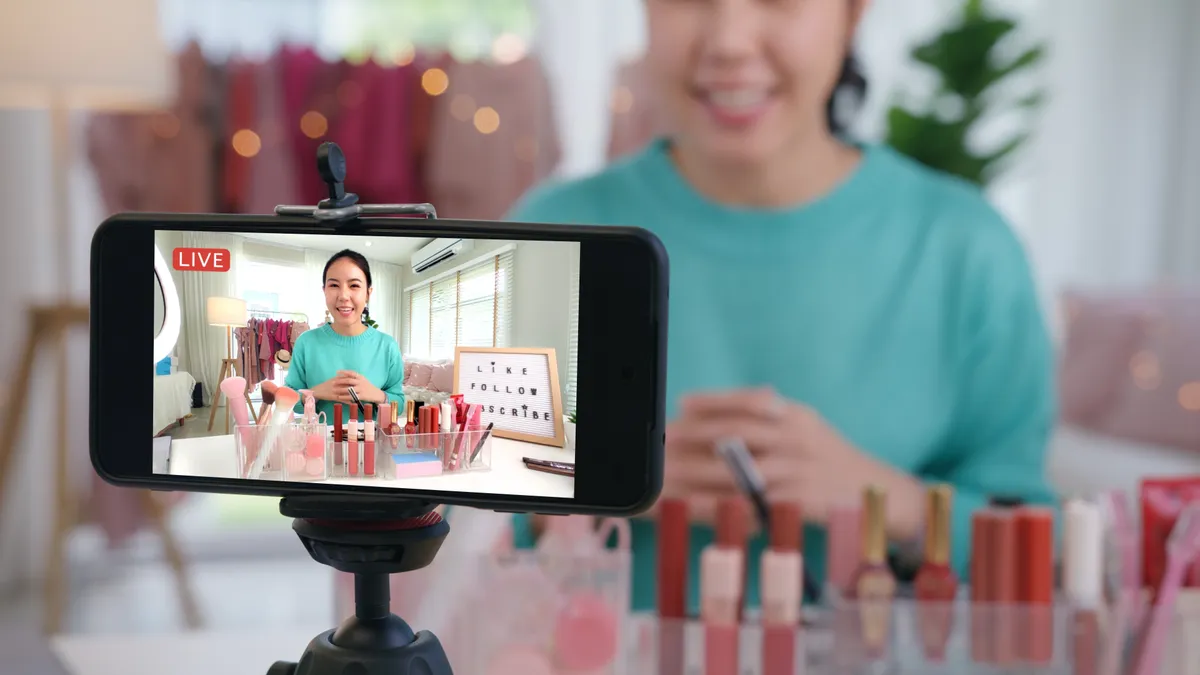Developing an emotional connection is now essential as brands look for innovative ways to establish long-term relationships with consumers. This is especially true for retail brands that compete with the low overhead and convenience of a dominant ecommerce industry.
As a result, many retailers have turned to experiential marketing strategies that provide immersive and memorable product interactions. And by collaborating with brand-aligned influencers, companies have the perfect partners for an approach that delights consumers throughout the customer journey.
How retail brands can benefit from experiential marketing
The COVID-19 pandemic forced a record 12,200 U.S. stores to close in 2020 and pushed countless others to the brink. As in-person shopping slowly resumed, retailers devised new ways to incentivize customers to return to their brick-and-mortar locations.
Many retailers found their solution with experiential marketing—a strategy that 79% of companies in a recent survey said helped increase overall sales. The practice has been so successful that roughly 84% of agency and brand owners say it will only increase in the years to come.
After shuttering 26 stores in 2020, Dick's Sporting Goods opened a new store the following year with a rock climbing wall and batting cages. The activities created a fun and interactive shopping experience and let customers try products to encourage on-site selling.
L.L.Bean is another brand known for its experiential marketing tactics. Through pop-up shops, concerts, and various other memorable events, the brand creates opportunities to see, touch, and try its gear in unique ways.
How influencers can help create memorable moments
Influencers are masters at connecting with their followers and generating content that resonates. Marketers have also found tremendous success using content creators to share their brand's story and provide genuine product endorsements with a human touch.
Because influencers already know the kind of experience their followers are looking for, incorporating them into an experiential marketing strategy provides an event planner, host, and salesperson all wrapped into one.
6 steps every retailer should follow for successful experiential marketing campaigns with influencers
Establish the 'why' and set clear goals.
First, you'll need to establish the "why" for your experiential marketing event. Are you introducing a new product line? Do you want to increase sales of a specific product?
Then you can develop a set of clear goals to determine the success of your event. No matter what you hope to achieve, setting specific goals creates purpose and streamlines your focus.
Plan with plenty of time to spare.
Experiential marketing events have a lot of moving parts. For big events, you should begin planning at least three months in advance to promote the experience properly and ensure everything goes off without a hitch.
Be sure to delegate responsibilities to all your influencers and employees based on their strengths. Once everyone knows their role, you can start coming up with hashtags, contests, or anything else that can help you build awareness for your event.
Reach out to influencers for help.
Reach out to your current influencers as soon as you start planning and let them know how critical they are to the event's success. Allow plenty of creative freedom throughout the process, but provide detailed campaign briefs so everyone knows their expectations.
If you reach out to new influencers, consult your current creators about any prospects to ensure they mesh well with your team.
Have an 'influencers-only' soft opening.
A soft opening gives your influencers a chance to try products, participate in activities, and generate last-minute content. Remember, they know their audiences best, so stay open to any feedback or tweaks they suggest after the soft opening.
Get the party started.
If you've planned well, you should be able to sit back and watch the day unfold while you keep track of results. Even though your influencers will be actively posting, you and your team should still be publishing content from your owned media channels.
Repurpose your best content.
Your event should yield plenty of quality content you can repurpose across your entire marketing funnel. But remember to ensure you have the rights to your influencers' posts if you plan to use their content for ongoing social media and PPC marketing.
At the end of the day, your customers want to be able to see a compelling story behind your brand. By incorporating your influencers into an experiential marketing campaign event, you equip them to publicize an adventure that only your brand can provide to their audience.











